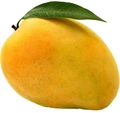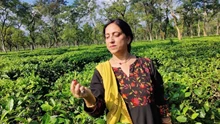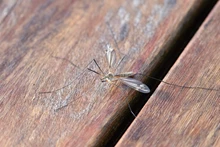
Mango is India's most important fruit crop, providing a livelihood for millions of farmers. India is the world's top producer of mangoes, with an estimated annual production of 24.7 million tons. Leading mango-producing states are Uttar Pradesh, Andhra Pradesh, Bihar, Karnataka, Telangana, and West Bengal, with Uttar Pradesh at the forefront. India has about 1,000 mango varieties, but only a few are commercially grown. These varieties need specific eco-geographical conditions for optimal growth. Northern and Eastern varieties are usually late bearers, while some southern varieties bear fruit year-round. Major commercial varieties include Alphonso, Banganapalli, and Dashehari. Besides these varieties, researchers are also releasing hybrid varieties that not only increase yield but are also disease and pest resistant. One such variety is Arunika.
Arunika Mango Hybrid
One of the most exciting developments in mango cultivation is the creation of the Arunika hybrid. This new variety is a cross between the popular Amrapali and Vanraj mangoes. The Arunika hybrid stands out for its regular bearing, high yield, and late maturity. Its fruits are smooth and attractive, featuring an orange-yellow color with a red blush, making them highly appealing for both domestic and export markets.
Key Characteristics of Arunika Mango
-
Regular Bearing and High Yield: Arunika is known for its consistent fruit production, making it a reliable choice for farmers.
-
Semi-Dwarf and Compact Canopy: The tree has a semi-dwarf structure with a compact canopy, which is beneficial for easier management and harvesting.
-
Attractive Fruit: The fruits are medium-sized, weighing between 190-210 grams, and have a pleasing ovate oblique shape. The pulp is firm and orange-yellow with minimal fiber, comprising about 65% of the fruit.
-
Excellent Shelf-Life: Arunika mangoes have an excellent shelf life, making them ideal for export. The fruit has a pleasant flavor with a Total Soluble Solids (TSS) content of 24.6°Brix.
-
Nutrient-Rich: This hybrid is exceptionally rich in mangiferin and β-carotene, which are beneficial for health.
-
Adaptability: Arunika is suitable for cultivation in a wide range of mango-growing regions, including Uttar Pradesh, Bihar, Madhya Pradesh, West Bengal, Uttarakhand, and Orissa. It performs well in both subtropical and tropical conditions but is not recommended for high rainfall areas.
Cultivation and Market Potential
The Arunika mango hybrid takes about 2-3 years to start bearing fruit and requires 120-140 days from fruit set to maturity. It is particularly suitable for table purposes due to its excellent taste and appearance. With its attractive red fruit color and exceptional quality, Arunika holds great potential for both internal and export markets.
Disease Resistance and Climate Resilience
Arunika has shown partial tolerance to anthracnose and no major issues with other diseases and pests. However, changing climatic conditions could pose challenges to mango production by affecting vegetative growth, flowering, fruit set, and quality. Therefore, developing hybrids like Arunika, which possess desirable traits such as regular and early bearing, high pulp percentage, and good keeping quality, is crucial for sustaining mango production.
The Arunika mango hybrid represents a significant advancement in mango cultivation, offering farmers a reliable, high-yielding variety with excellent market potential. Its attractive appearance, superior quality, and adaptability make it a valuable addition to India's diverse mango varieties, promising a bright future for both growers and consumers.













